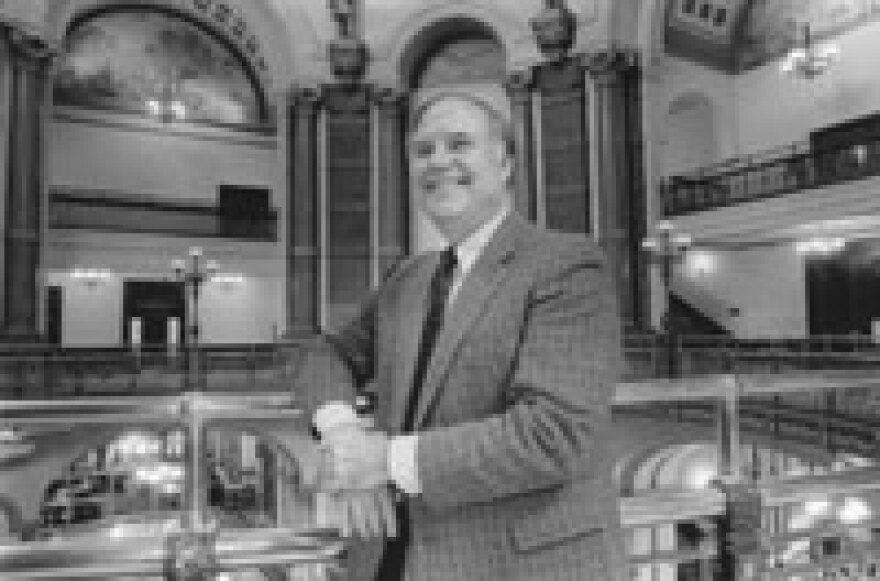Like dry rot slowly undermining a home's floor joists, an insidious trend is eating away at the nation's historic underpinnings.
The peril comes not from the chance that more governments will recognize formally committed relationships between same-sex couples. Neither is it the possibility that the national anthem will be widely sung in Spanish, nor even growing support for smoke-free environs. Rather, the danger is the spreading shroud of government secrecy that elected and appointed officials are pushing to cloak their actions from public scrutiny.
The closed-door mentality attacks the core principle upon which the United States was established, the notion of self-government. Simply put, the founders believed that everyday citizens had the capacity to rule themselves, to make decisions about who should be their leaders and what policies should be pursued for the common good. No longer would people answer to hereditary monarchs or autocratic emperors; high priests and shamans were not needed.
But that radical departure from 18th- century norms depended on a very big assumption: that the average person would have available the information required to make sound judgments on public issues. Indeed, the founders crafted the First Amendment guarantees of free speech and free press precisely to encourage the marketplace of ideas and to assure the free flow of information.
Over time, the media assumed the role as the eyes and ears of the public, keeping people abreast of current issues and serving as watchdogs over government behavior. Public officials didn't always enjoy the spotlight, particularly when an enterprising reporter caught them with their hands in the cookie jar, but the citizenry generally has been well-served by journalists' dedication to providing their readers and listeners the facts needed to make informed judgments.
In recent years, however, the commitment to open government has weakened. At the federal level, reporters' ability to gather information has been undercut by increasingly broad claims of national security, executive privilege and privacy rights. Moreover, prosecutors and judges appear more inclined to force journalists to disclose confidential sources, thus discouraging whistle-blowers. And some politicians even have suggested that reporters and editors be charged with treason for publishing stories about covert federal counter-terrorism surveillance programs that some critics consider unconstitutional.
Closer to home, Gov. Rod Blagojevich's administration has refused reporters' requests to make public subpoenas served on a host of state agencies as part of an ongoing investigation into what federal prosecutors termed "allegations of endemic hiring fraud." The administration contends the subpoenas are part of the grand jury process and thus confidential, an assertion under review by state Attorney General Lisa Madigan. In the past, Madigan has held that most subpoenas are public records subject to the state's Freedom of Information law.
The administration's reluctance reflects a broader pattern, as Blagojevich has sought to exert tighter control over state government news than any governor in recent memory. He is rarely available to Statehouse reporters, for example, and veteran journalists find it difficult to get information that was routine in the past.
At the federal level, reporters' ability to gather information has been undercut by increasingly broad claims of national security, executive privilege and privacy rights.
When public officials try to control information and reporters have a harder time doing their jobs, average citizens should be concerned, says Lucy Dalglish, executive director of the Reporters Committee for Freedom of the Press, a not-for-profit organization that provides legal advice to journalists and champions government transparency.
"That's not the way the founders intended us to operate," she says. "They really believed that citizens should be empowered to participate in their government [and] to do that, to make good decisions at the ballot box, you have to have access to quality information."
A common misconception, Dalglish notes, is that "sunshine" laws, like Freedom of Information and Open Meeting acts, are intended to give special privileges to journalists. "They're not for the benefit of reporters, but of society as a whole." Few citizens have the time to attend all the meetings of public bodies, or participate in all the decisions that are made; instead, citizens must turn to the media to provide quality information. "We rely on reporters as our surrogates," she says. If people are not able to find out what government is doing, "they're in a lousy position to make good decisions about who should lead them and how to live in the community."
Dalglish believes voters should let political candidates know that open government is important to them. "Ask them how they feel about access to information, what they've done to make it easier for citizens to know what their government is up to," she suggests. Also, local schools should provide a firm foundation in basic civics "so that students know the role free information plays in our continuing progress as a society," she adds.
Education about open government is also good for public officials and workers, says Madigan. Most of the complaints her office fields about state sunshine laws reflect misunderstandings about the statutes' requirements, rather than deliberate evasions, she notes.
To help ensure that government units conduct business openly and handle public records requests properly, Madigan appointed Terry Mutchler, an attorney and former Statehouse bureau chief for The Associated Press, as public access counselor. In her first year on the job, Mutchler handled more than 1,000 cases dealing with the Freedom of Information and Open Meetings acts, and conducted 75 training sessions statewide for government officials, the media and interested citizens, according to the access counselor's annual report.
Interestingly, almost 77 percent — 773 of 1,011 cases — originated with citizens concerned about closed meetings or problems in obtaining documents. Fourteen percent came from government officials, and the remainder — less than 10 percent — were from reporters.
The founders would be pleased.
Charles N. Wheeler III is director of the Public Affairs Reporting program at the University of Illinois at Springfield.
Illinois Issues, February 2006






